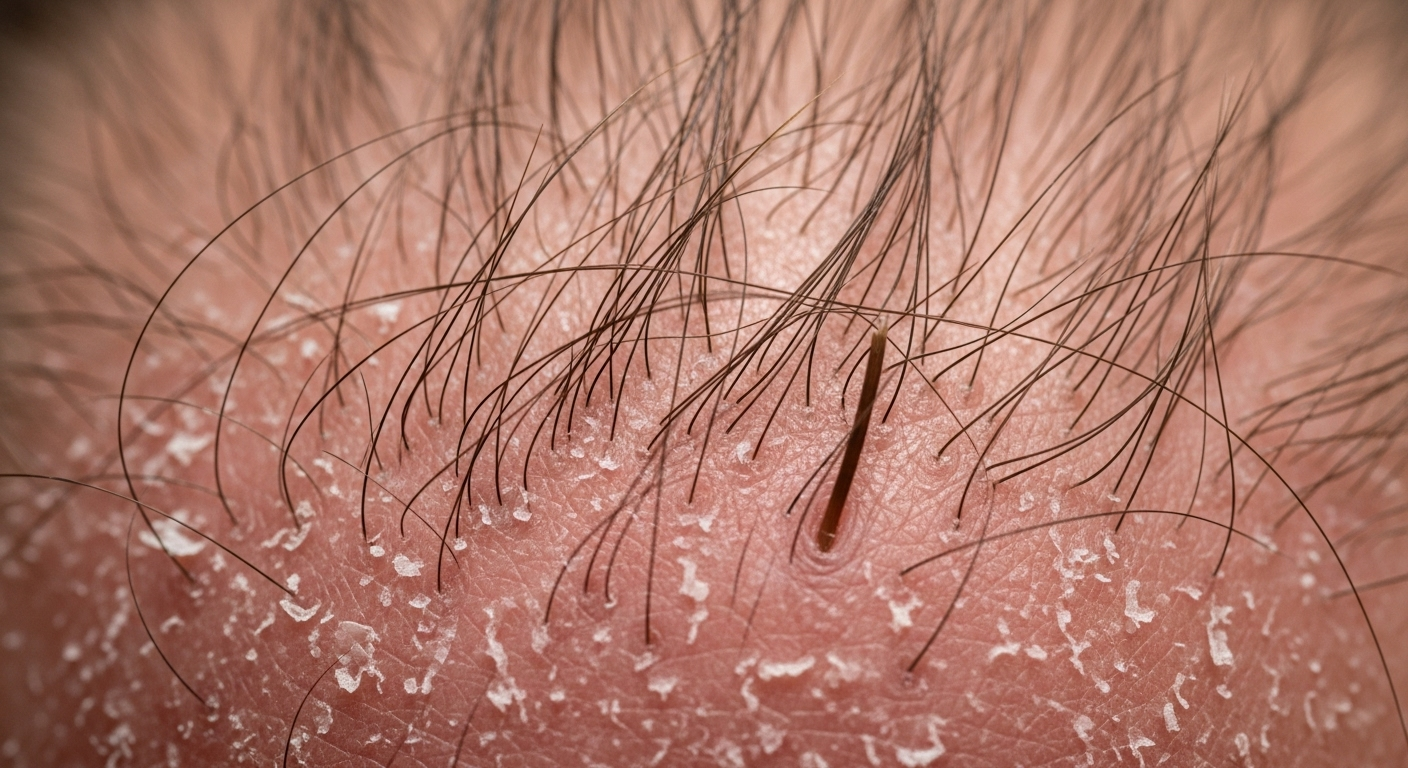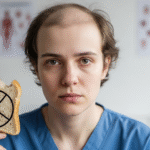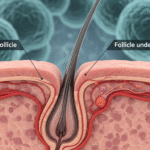A dry, flaky scalp can be more than just an uncomfortable nuisance. Can dry scalp lead to hair loss? While it might seem like a minor issue, a dry scalp can create conditions that promote hair thinning or shedding. In this article, we'll explore how a dry scalp affects hair growth, what causes it, and …
A dry, flaky scalp can be more than just an uncomfortable nuisance. Can dry scalp lead to hair loss? While it might seem like a minor issue, a dry scalp can create conditions that promote hair thinning or shedding.
In this article, we’ll explore how a dry scalp affects hair growth, what causes it, and how to manage the issue before it leads to more serious hair concerns.
By the end, you’ll have a clearer understanding of the connection between dry scalp and hair loss, along with actionable tips for treatment.
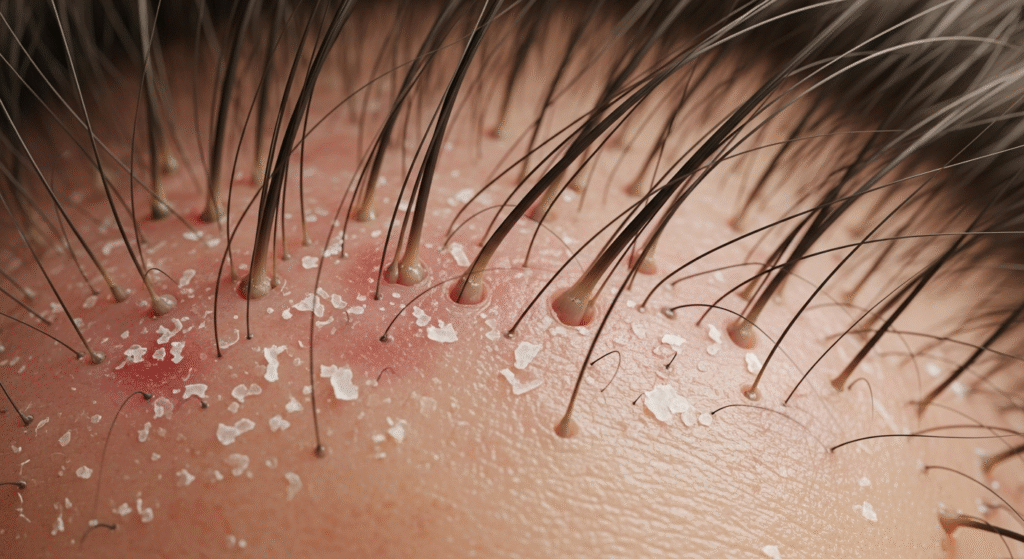
What Is Dry Scalp? and Can Dry Scalp Lead to Hair Loss
Dry scalp occurs when the skin on your scalp becomes dehydrated, resulting in tightness, flaking, and itching. Unlike dandruff, which is often linked to excess oil and a yeast overgrowth, dry scalp is usually a result of insufficient moisture.
This lack of moisture can cause the skin to become cracked and flaky, making your scalp uncomfortable and potentially damaging the hair follicles.
Symptoms of Dry Scalp
Common symptoms include:
- Itching: The lack of moisture can lead to persistent itching on the scalp.
- Flaking or Scaling: You may notice visible white flakes or patches of dead skin.
- Tightness: The scalp may feel tight or dry, especially after washing.
- Redness or Irritation: Dryness can sometimes lead to redness or irritation of the skin.
Causes of Dry Scalp
Several factors can contribute to dry scalp, including:
- Cold or dry weather: During colder months, the lack of humidity in the air can strip moisture from the skin.
- Harsh hair care products: Shampoos and conditioners containing sulfates, alcohol, or strong fragrances can dry out the scalp.
- Over-washing hair: Frequent washing can strip the scalp of its natural oils.
- Dehydration: Not drinking enough water can lead to dry skin all over the body, including the scalp.
- Skin conditions: Conditions like eczema or psoriasis can cause dry patches and scalp irritation.
By understanding the root causes of dry scalp, you can better address the issue before it leads to hair loss.
How Dry Scalp Can Lead to Hair Loss
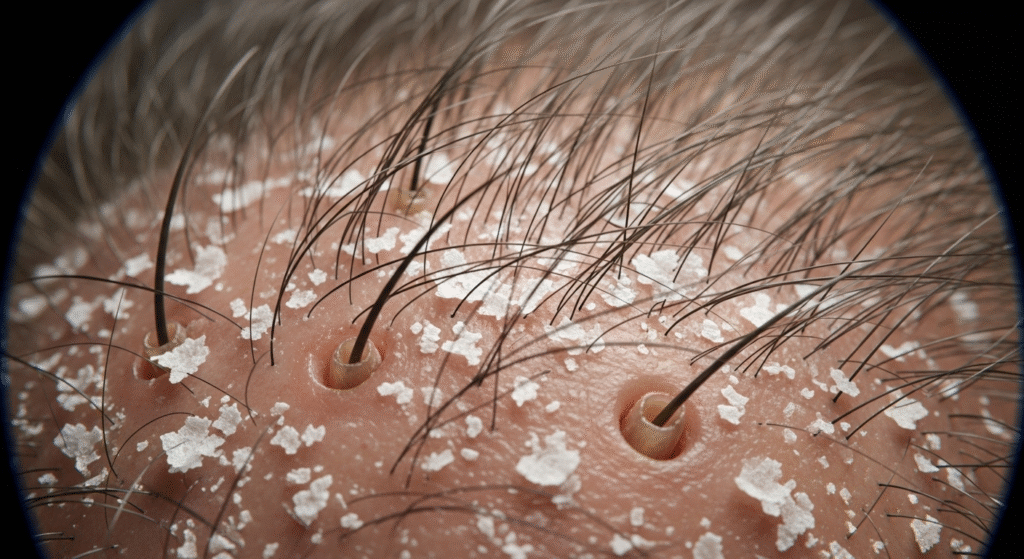
1. Inflammation and Follicle Damage
Persistent dryness can lead to inflammation of the scalp, a process that damages hair follicles over time. When the scalp becomes inflamed, it can weaken the follicles, causing them to become less effective at supporting hair growth.
- Chronic inflammation can prevent hair follicles from entering the anagen (growth) phase, which is necessary for new hair to grow.
- As the follicles weaken, hair growth slows, and you may begin to notice thinning or shedding.
2. Increased Scratching and Trauma to Hair Follicles
Itching is a common symptom of dry scalp, and frequent scratching can cause further damage. While scratching may provide temporary relief, it can lead to physical trauma to the hair follicles. This damage can result in:
- Breakage: Scratching can weaken hair shafts, causing hair to break and fall out.
- Follicle Injury: Prolonged scratching may damage the hair follicles, preventing them from growing healthy hair.
In severe cases, excessive scratching can cause scarring on the scalp, leading to permanent hair loss.
3. Underlying Scalp Conditions
Dry scalp is often linked to underlying scalp conditions, such as seborrheic dermatitis, psoriasis, or eczema, which can contribute to hair loss.
- Seborrheic dermatitis is a chronic inflammatory condition that causes flaking and redness. It is often accompanied by excessive oil production, leading to clogged hair follicles and hair loss.
- Psoriasis involves the rapid turnover of skin cells, which can form thick scales on the scalp and lead to hair breakage or shedding.
- Fungal infections, like tinea capitis, can cause a dry scalp with visible hair loss.
These conditions not only cause dry scalp but also disrupt the natural hair growth cycle, leading to thinning or shedding.
Common Conditions Associated with Dry Scalp and Hair Loss
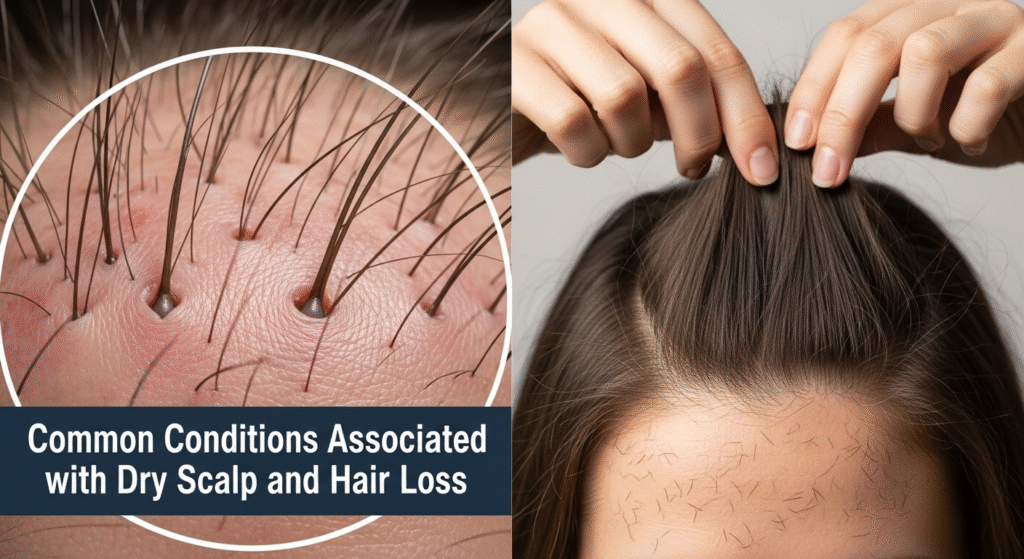
Seborrheic Dermatitis
Seborrheic dermatitis is a chronic condition that causes red, scaly patches on the scalp. It is one of the most common causes of dandruff, but it can also lead to hair loss. The inflammation and itching caused by seborrheic dermatitis can weaken hair follicles, leading to hair thinning over time.
- Treatment: Antifungal shampoos and topical corticosteroids are commonly used to manage seborrheic dermatitis.
Scalp Psoriasis
Scalp psoriasis results in thick, silvery scales on the scalp that may itch or bleed. This condition often causes hair loss due to the constant irritation and the formation of scabs that damage the hair follicles.
- Treatment: Topical treatments, including corticosteroids and vitamin D analogs, can help manage psoriasis and reduce scalp irritation.
Fungal Infections (Tinea Capitis)
Fungal infections, such as tinea capitis, are another common cause of dry scalp. These infections can cause flaking and patchy hair loss, and they often require antifungal treatment.
- Treatment: Antifungal shampoos and oral medications are necessary to treat fungal scalp infections and prevent hair loss.
Treatment Options for Dry Scalp and Hair Loss
1. Use Moisturizing Shampoos
To combat dry scalp, opt for moisturizing shampoos that are free from sulfates and harsh chemicals. Look for ingredients such as:
- Tea tree oil: Known for its soothing and antimicrobial properties.
- Aloe vera: Helps hydrate the scalp and reduce irritation.
- Zinc pyrithione: Effective in treating dandruff and soothing dry scalp.
These ingredients can help restore moisture to the scalp and promote a healthy environment for hair growth.
2. Avoid Harsh Hair Care Products
Products containing sulfates, alcohol, or strong fragrances can strip your scalp of its natural oils. Instead, choose gentle, hydrating hair care products that are designed for dry or sensitive scalps.
- Avoid drying agents like alcohol-based products, which can exacerbate scalp dryness.
- Choose products labeled “for sensitive scalp” to prevent further irritation.
3. Natural Oils for Moisture
Natural oils such as coconut oil, olive oil, or jojoba oil can be massaged into the scalp to provide deep hydration. These oils have nourishing properties that help restore moisture and soothe dryness.
- Apply the oil to the scalp and leave it on for at least 30 minutes before washing it out.
- Be consistent, but avoid overuse to prevent product buildup.
4. Scalp Treatments and Masks
Regular use of scalp treatments or masks can help restore moisture and improve the health of your scalp. Hydrating masks or oils can help to:
- Improve blood circulation to the scalp.
- Relieve itching and irritation.
- Strengthen hair follicles.
5. Consult a Dermatologist
If dry scalp persists despite home treatments, it’s essential to consult with a dermatologist. They may recommend prescription-strength shampoos, topical treatments, or oral medications to address underlying conditions like seborrheic dermatitis or scalp psoriasis.
Preventive Measures
While treating dry scalp is important, preventing it is equally crucial to maintain healthy hair:
- Stay hydrated: Drink plenty of water to keep both your body and scalp moisturized.
- Balanced diet: Include foods rich in vitamins A, D, E, zinc, and omega-3 fatty acids to nourish your scalp from within.
- Limit heat styling: Excessive heat can dry out the scalp and hair, so try to limit the use of blow dryers and straighteners.
FAQs
1. Can dry scalp cause hair loss?
While dry scalp doesn’t directly cause hair loss, it can contribute to hair shedding by causing inflammation, itching, and follicle damage.
2. What causes dry scalp?
Dry scalp is caused by a lack of moisture and can result from cold weather, harsh hair care products, over-washing hair, or dehydration.
3. How can I treat dry scalp at home?
Home treatments include using moisturizing shampoos, applying natural oils like coconut oil, and avoiding harsh hair care products.
4. When should I see a doctor for dry scalp?
If symptoms persist despite home treatment or you experience severe irritation, redness, or hair loss, consult a dermatologist for evaluation and treatment.
Conclusion
While a dry scalp doesn’t directly cause hair loss, it can create conditions that contribute to hair thinning and shedding. By addressing the causes of dry scalp and following the proper treatment plan, you can restore scalp health and promote hair growth.
If you’re struggling with dry scalp or hair loss, don’t wait for the problem to worsen. Schedule a consultation with Dr. Uzma Irfan, an ISHRS-certified surgeon in Islamabad today, to discuss the best course of action. From customized treatments to lifestyle changes, professional advice can help you restore your scalp health and maintain healthy hair.

